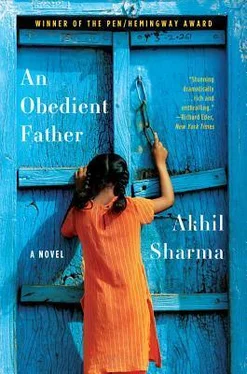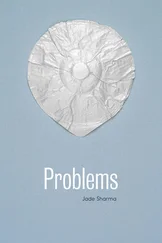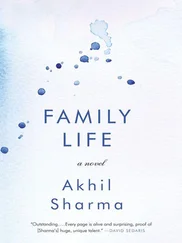Akhil Sharma - An Obedient Father
Здесь есть возможность читать онлайн «Akhil Sharma - An Obedient Father» весь текст электронной книги совершенно бесплатно (целиком полную версию без сокращений). В некоторых случаях можно слушать аудио, скачать через торрент в формате fb2 и присутствует краткое содержание. Год выпуска: 2000, Издательство: W. W. Norton & Company, Жанр: Современная проза, на английском языке. Описание произведения, (предисловие) а так же отзывы посетителей доступны на портале библиотеки ЛибКат.
- Название:An Obedient Father
- Автор:
- Издательство:W. W. Norton & Company
- Жанр:
- Год:2000
- ISBN:нет данных
- Рейтинг книги:4 / 5. Голосов: 1
-
Избранное:Добавить в избранное
- Отзывы:
-
Ваша оценка:
- 80
- 1
- 2
- 3
- 4
- 5
An Obedient Father: краткое содержание, описание и аннотация
Предлагаем к чтению аннотацию, описание, краткое содержание или предисловие (зависит от того, что написал сам автор книги «An Obedient Father»). Если вы не нашли необходимую информацию о книге — напишите в комментариях, мы постараемся отыскать её.
Ram Karan, a corrupt official in New Delhi, lives with his widowed daughter and his little granddaughter. Bumbling, sad, ironic, Ram is also a man corroded by a terrible secret. Taking the reader down into a world of feuding families and politics,
is a work of rare sensibilities that presents a character as formulated, funny, and morally ambiguous as any of Dostoevsky’s antiheroes.
An Obedient Father — читать онлайн бесплатно полную книгу (весь текст) целиком
Ниже представлен текст книги, разбитый по страницам. Система сохранения места последней прочитанной страницы, позволяет с удобством читать онлайн бесплатно книгу «An Obedient Father», без необходимости каждый раз заново искать на чём Вы остановились. Поставьте закладку, и сможете в любой момент перейти на страницу, на которой закончили чтение.
Интервал:
Закладка:
"This is no cartoon," I heard Krishna say. He stuck his head between the shoulders of the people carrying me and looked down into my face. For a moment he appeared surprised, and then his face resumed its normal irritated expression. He resembled both my mother and my father. Krishna ordered the people to bring me into the factory.
I was laid on a cot in a small office with green walls. A table fan was placed on the floor next to me. Krishna stood by my head and told the people who had carried me, "You can have some ice cream." It occurred to me that Krishna probably owned the factory.
When they left, Krishna turned to me and said, "This is how you
return home. To cut my nose in front of everyone. Hiding in some crowd. Hiding and watching and then surprising. People love to talk evil." I didn't say anything. Krishna put his hand on my forehead. He kept it there for a while. "Sleep. You have a fever." He left, and I only had time to wonder whether I should ask for the pundit before I fell asleep.
I was woken several hours later by two of Krishna's sons. One of them, Raju, I liked very much. He was just under five feet tall and had an odd, almost triangular jaw. Because of a heart problem which required him to go to Delhi hospitals, Raju had stayed with me many times. Seeing him relieved some of my anxiety. "Namaste, Chachaji," he said, helping me up from the cot. His brother, Munna, who was almost six feet tall, slipped one of my arms around his shoulder. "We're looking for a girl for Munna," Raju said, "and we don't want people to gossip. That's why Pitaji is so angry." Munna had been married twice. His first wife had been run over by a bus. Munna appeared solemn and sad, and I wondered whether the second one was also dead. Even as a child he had been quiet. I used to joke with him that his seriousness was because, even though he was six feet tall, his father made everyone call him Munna, little one. Raju propped me up on one side. We moved out of the room and down a hall.
"It's for your good, mostly," Munna added. "We don't care what people say." He said this so angrily that I became defensive.
"Would I be hiding in front of your factory if I wanted to avoid you?" My voice was a hiss. "I came to ask your father to Radha's death anniversary."
Munna continued talking without noticing me. "They might start saying you are some opium addict and that's why you passed out." We left the factory by a back entrance and came out onto a dirt yard where a white Ambassador sedan was parked. As Munna slid me onto the back seat, he said, "This factory is ours. The ration store is ours. The restaurant-garage where your bus must have stopped, that's ours also."
I slept in the car and woke briefly as they laid me on a cot against a wall in their house.
I woke in the evening when the sky held by the doorway had turned red. Krishna was sitting on a chair next to me, reading a magazine by the light of a small lamp. I was saddened by the confusion of the day. Nothing had happened in any order I could even have imagined. Krishna looked up and said, "You had a fever, but it's gone now." He stared at me as if he were waiting for me to speak. He closed the magazine, but kept a finger between the pages he had been reading.
I felt no kinship with Krishna. Yet he had my mother's perfectly round nostrils and my father's small mottled teeth. The whole useless, shapeless day was present in my head, and my heart started to break. "You can never stop being brothers. Raju told me." For a moment I wondered what he was talking about. Then I realized that Raju must have told him I had come to ask him to tomorrow's ceremony and therefore make amends. "Both Vinod and I talk about you often. We are still your brothers."
After a moment I asked, "Will you come?"
"I will. Vinod is away on a pilgrimage. Last year he had a brain thing and he promised God if he got well he would pray twice every day and go to Vaishnodevi. He's become so religious now anyone can sell him a statue if they claim the river threw it up."
A short plump woman entered the room with two plates of rotis and subji. I sat up. She put the plates on a stool and placed this next to the bed. "Did anyone tell you to bring food?" Krishna said calmly. The woman became perfectly still. "Does my brother look like he can eat?" Krishna's voice was louder now. She took a step back. "Your parents didn't warn me you were retarded." She picked up one plate. "I'm going to eat while my brother can't?" Krishna stared at her as she took his plate and hurried out. Then he turned to me and smiled. "That's Raju's wife. When she came here, she was so proud of being high school — pass, she would read the newspaper in front of me. Now she barely talks."
At least I am better than Krishna, I thought. I pushed myself up and sat leaning against the wall. Raju appeared in the doorway, drinking a cup of tea. He asked how I was and left. Krishna began telling me what had happened over the last five years, some of which I already knew from mutual acquaintances. Vinod's son Sanjay and Krishna's son Pankaj had smuggled in seventeen thousand dollars from working in the United Arab Emirates. With this capital Vinod and Krishna had seized control of the most profitable businesses in Beri. Their latest acquisitions were the ice-cream factory and a license to sell liquor. Pankaj had recently written to Kusum telling her they were planning to sneak into America and could she help them. She had promptly written back saying her husband wouldn't let her.
I had a hard time concentrating. The odd shape of the day was making me want to cry in frustration. What could I do if things happened unpredictably and I was too weak-willed or stupid to handle anything but the simplest situations? I managed to ask if the pundit was still in Beri, but he had returned to Delhi. Krishna spoke so long and had such a good time talking that when he asked if I was going to spend the night, I felt he would genuinely have liked me to remain.
Raju drove me to the bus stop on a motorcycle. I was so weak that I kept sliding about and throwing him off balance. He got me a seat on the bus, and once I was in it, he bought me oranges for the trip back. He stood in the aisle beside me waiting for the bus to start. I asked what had happened to Munna's wife.
There was such a long pause after my question that I thought Raju meant to ignore me. "She hanged herself," he said finally. It was too dark to see his face. "It isn't Munna's fault. Everybody thinks it is. She used to cry a lot. She couldn't adjust to Pitaji. My wife, she's fine." He touched my shoulder.
"This was Munna's second."
"Yes, that's why it appears so bad. People now say the first one threw herself before the bus." He looked away and sighed. "It's
because of her death that Munna's angry all the time." After a moment he shrugged and said, "She was crazy. The fact that she killed herself is proof"
Once the bus left Beri, I leaned my head against the window and fell into a stupor. I dreamed of the bear dancing and the squirrel boy and the cold vomit. The bus moved shaking and rattling down the highway. There was a full moon, but the fields along the side of the road looked as dark as the sea at night. I kept slipping into sleep and being jolted out of it.
I woke from one such sleep when the bus stopped in the middle of the highway. There was a hill on one side and fields on the other. The bus had stopped because a road was being cut up the hill and the engineers had placed their equipment in two tents in the center of the highway. There was a traffic jam as trucks and buses edged off the highway and tried to go around the encampment. I was so dazed that I stared at the hill for a while without fully realizing what was being built.
There were a hundred or so men digging the road, and the only light they had was the moon. They were working in teams, on separate patches ten or fifteen meters long. As they dug, women came behind them, scattering gravel in the spaces which had just been emptied. Some of the men and women looked like shadows, and others I could locate only by the sound of their voices or their shovels hitting dirt. I could not tell how far up the hill the teams were working, whether there was one at the very top.
Читать дальшеИнтервал:
Закладка:
Похожие книги на «An Obedient Father»
Представляем Вашему вниманию похожие книги на «An Obedient Father» списком для выбора. Мы отобрали схожую по названию и смыслу литературу в надежде предоставить читателям больше вариантов отыскать новые, интересные, ещё непрочитанные произведения.
Обсуждение, отзывы о книге «An Obedient Father» и просто собственные мнения читателей. Оставьте ваши комментарии, напишите, что Вы думаете о произведении, его смысле или главных героях. Укажите что конкретно понравилось, а что нет, и почему Вы так считаете.












